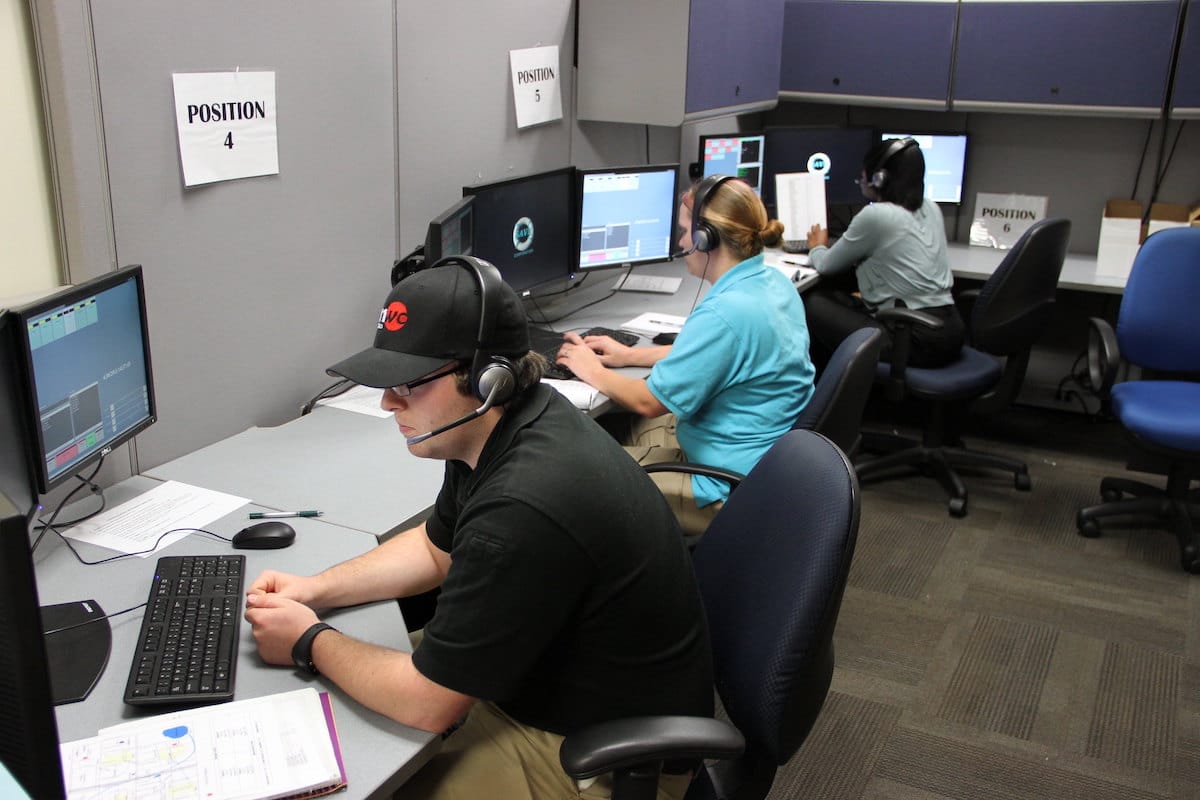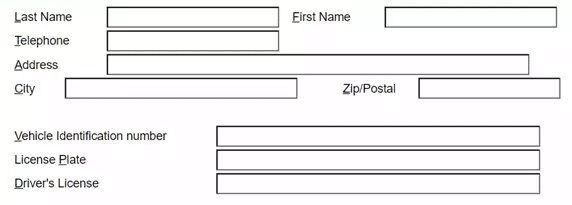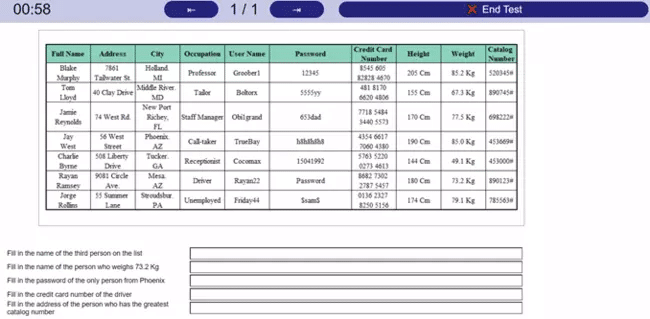
911 Dispatcher Criticall Test: Comprehensive Prep Guide for 2024
Are you interested in going into the fields of emergency medical service, law enforcement, or criminal justice? If so, becoming a 911 dispatcher is the perfect job for you. You can gain experience by being an important part of public safety.
To be qualified for the job, you have to pass the Criticall Test. Like many other jobs, employers across the U.S. and Canada require you to take a test and get a passing score so that they will know who among the candidates is qualified for the job. The same goes for UK NHS, for example.
It is understandable to get anxious about taking the Criticall Test, but you don’t have to worry. This article contains recommended training materials and Criticall Test tips that will help you get passing scores and be on your way to becoming a public safety dispatcher.
Table of Contents
What Is the Criticall Test?
The Criticall Test is a fast-paced test that assesses a person’s competence to perform a 911 dispatcher job correctly. Unlike many other standardized tests you may have taken throughout your academic career, this test focuses more on actual abilities and the application of your knowledge than general questions or accuracy.
It is this way because there is no specific degree or training program needed to be a 911 dispatcher. Therefore, it is a skills-based assessment rather than a specific trade or field knowledge exam.
Because being a 911 dispatcher is a position where you will undoubtedly encounter extremely stressful experiences, it is crucial that employers know you can handle these types of situations. While it obviously isn’t the same environment that you will be in at an actual job, taking this test gives you the opportunity to see what a few hours on the job might look like.
The test can also be a learning experience for you to know whether or not this job will be a good fit. In total, it will take no more than three hours to complete all sections of the test. Most people take the entire time to complete the test because it has many sections that are time-limited to how long it should actually take you to finish the task or questions.
What Are the Sections of the Test?
One of the more challenging aspects of the Criticall Exam is knowing which modules will be on the test. In total, there are 23 modules that you may or may not be tested on. However, you still have to study all of them because the place where you take the test will most likely not let you know ahead of time what ones will be on there.
In most cases, the law enforcement department that you will be working with will have specific modules that they request or that they feel are most applicable to their workplace. On average, there could be 12 to 15 different modules on the actual test. Below are the most common modules that you may encounter on the test:
1. Decision-Making
In the decision-making section, your ability to make decisions quickly will be tested. It’s unique because it requires you to speak into a microphone to answer the questions. An emergency situation will be presented to you and you will have to respond with what service you believe needs to be sent. Visual cues are provided to help you choose the right service.
For this section, it’s important that you practice thinking about what you’re going to answer before you say it to avoid blurting out the wrong answer. Decision-making also appears on other parts of the test, so it’s something you’ll have to know how to do very well. It is one of the basic skills that you have to have if you want to be effective on the job. After all, making decisions is essential in responding to an emergency.
2. Data Entry
Like many jobs, knowing how to correctly input data as a 911 dispatcher is crucial. As such the Criticall Dispatcher Exam tests your data entry skills. Data entry is very important because if any information entered is wrong, it can result in terrible consequences. In this section, you’ll be given an emergency situation and will have to decipher the most important information out of it.
Similar to forms you fill out online, the forms in the Data Entry section require you to enter basic situational and demographic information. However, this section isn’t as simple as it seems. You will be given different scenarios. The emergency messages can come from a phone call (an audio data entry assessment) and written as passages (regular data entry assessment). It’s your job to decipher them as quickly as possible and get the data in before the next one pops up.
You’ll be utilizing skills for multiple modules here, too. An example of the data entry platform is pictured below:
For more examples of what graphics or questions might look like, visit the Job Test Prep website.
3. Typing
The Criticall Dispatcher Test measures your typing skills. This means that you it checks your typing speed and accuracy. Because you will be working in an emergency situation, it’s important to be able to type quickly and efficiently–all the while being able to multi-task and use your decision-making skills. This module is one you will use consistently throughout the test, so it’s important to study it and know it well. So, it’s crucial that you make sure to work on your typing speed to pass the test.
4. Call Summarization
The Call Summarization section is fairly straightforward. Like the other modules/sections, you will be presented with an emergency scenario via phone call. However, you need to summarize calls here and you need to showcase your data entry skills because you’ll have to enter the important details from your summary into a form similar to the one pictured previously.
5. Memory Recall
Having a strong memory recall is extremely important as a 911 dispatcher. It’s a strength that you’ll have to have in other aspects of your life as well. Without having a strong memory, you may miss important details of an emergency situation that could be extremely detrimental to the person on the phone.
On the Criticall Dispatcher Test, you will have to demonstrate that you are capable of memorizing many complex things at one time. You’ll input it in various ways and the information will be presented to you either visually or through audio. This is another skill that you’ll have to use throughout almost every module and question on the test.
6. Map Reading
Another useful life skill you’ll use as a 911 dispatcher is being able to read a map. As a dispatcher, you will have to ask people for their location and enter that information for the officers to be able to reach them in a timely manner. The questions on the test will have you take this skill a step further, however.
In the Criticall Test, you will be required to look at a map and determine the most direct route to go from point “a” to point “b” while identifying landmarks along the way. Unlike many of the other questions in the Criticall Tests, these will Map Reading questions will be in a multiple-choice format.
You need to learn how to work with this test format while still focusing on the other aspects of what you are being asked to do. Multitasking is also one of the most important dispatcher skills you need to have and it is essential when answering the Map Reading Test.
7. Spelling
The Spelling and Grammar Module of the Criticall Test is similar to those tests you have encountered during grade school. The only difference is that the questions will either be in audio or regular format.
Switching between two formats can be challenging, so you need to practice for it. As for basic spelling and grammar, they are some of the important skills you have to have as a dispatcher.
Many people depend on the information that you enter into the database, most of which will be highly-sensitive emergency cases. Therefore it’s vital that you are able to communicate effectively and that people can understand what you’re writing or saying.
8. Cross-Referencing
Similar to the data entry module, you have to read through or listen to a scenario and then correctly enter it into a large data table when answering the Cross-Referencing module. The tables could be large or small depending on what scenario you’re given.
You’ll be expected to do this in a very short amount of time, so being familiar with the structure of the table is important. Another example of how this might look on the test can be found below:
This sample question comes from the Job Test PrepPack. The pack contains Criticall practice tests that are worth three months.
9. Character Checking Test
Being able to decipher between lists of codes, phrases, and other material that may look similar is extremely important when becoming a dispatcher. You may have to deal with things like license plate numbers, which can often become easy to mix up when they are put into a chart or list.
This module focuses on your ability to pick out the small differences between data and report those differences. The most challenging part of this section of the test is that you will sometimes be required to do other things or listen to a recording of an emergency situation while you’re sorting through similar data.
Therefore, it’s important to utilize the skills you’ve practiced in other modules to be successful in this one.
10. Prioritization
Like many other professions that deal with emergency services, being able to prioritize one situation over another when it comes to urgency is a critical skill to learn. Many times, you may have to simply use your best judgment to determine who needs help quicker than other people. Although this can be a subjective skill, this module will focus more on the objective facts that you will be given during a real emergency call. You’ll be expected to rank the calls in order of importance and severity.
11. Reading Comprehension
You are probably familiar with reading comprehension test sections, especially if you have taken a number of standardized tests in your lifetime. Reading comprehension questions usually assess your ability to read a passage and pick out important details for it.
In many aspects of your job as a dispatcher, you will have to read very brief or very lengthy materials and retain what it says. This module will not only require you to recall information from a passage but it will also check your reading comprehension skills.
12. Sentence Clarity
Criticall Test’s Sentence Clarity module is similar to the spelling and grammar test. The module focuses on your verbal skills and writing skills. You’ll have to work through a series of sentences or paragraphs and figure out which one is conveyed the best.
So, when answering Sentence Clarity questions, you will always need to determine which one makes the most sense and explains the message the best. This will also be something that you will have to incorporate into your study skills to be able to interpret and understand the Criticall Test questions correctly.
13. Math
The Math Module is another common but challenging module of the Criticall Test. However, the test does not include complex concepts, it actually requires only basic Math skills. Because the purpose of the Criticall test is application-based, the problems you’ll be solving have to do with things you will see on the job.
How Should I Study?
Finding the right study resource will make a world of difference when you’re beginning the process of preparing for the Criticall test.
Good test prep materials contains Criticall practice tests and sample questions on the most common Criticall modules that has detailed explanations for each correct answer. Additionally, a study resource for this test should also have expert advice for job candidates to get more than a passing score.
There are many test prep resources available online. While there are free Crticall practice tests, it is important that you consider practice tests like those found in paid ones.
For example, JobTest Prep has a Criticall Test resource that can help you cover all 23 modules. The website is also reasonable with its pricing and offers several different packages:
- “Basic Package”: access to the Criticall test prep for one week
- “Basic License”: access to the Criticall test prep for one month
- “Premium License”: access to prep materials for 90% of common standardized tests, including the Criticall test
To get the best out of your Critical Test preparation materials, you can keep the following in mind:
1. Do Practice Tests
Taking Crticall practice tests can help you learn what types of questions may be on the test. On Job Test Prep, you can try out a short free Criticall practice test before you purchase the premium study package.
2. Become Familiar with Sample Questions
Like what was already mentioned above, becoming familiar with how questions are worded and structured is one of the best ways to prepare for the Criticall Test. Because the questions you’ll have to answer are very specific to the job you may be doing, it’s helpful to know what to expect. Here are a few tips when working through practice test questions:
- Be sure to read the sample question completely before answering.
- Look through each sample question option before picking your final answer.
- Use context clues throughout the instructions to help you pick your strategy for answering the question.
- If there are any graphs or passages you have to analyze, look at them immediately after reading the directions rather than skipping straight to the answers.
Important Habits to Develop to Succeed at This Test
In addition to studying hard, developing good habits while studying and test-taking is an important part of helping you succeed and perform to the best of your ability. Here are the top three skills that will be of help to you when preparing for the Criticall Test:
1. Focus
Being able to concentrate on something for a long time is very important when studying for a major exa like the Criticall Test. In this test, it is important that you can answer quickly. After all, there is little to no time to pause and think about what you have to do during an emergency situation.
2. Work Well Under Pressure
While all standardized tests are stressful, the Criticall test has a unique type of stress behind it. Answer Criticall practice tests with a time limit and many distractions like noise. This can cause a slightly stressful situation, which may become a good training ground when you take the real test.
3. Ability to Switch from One Task to the Other Easily
Multitasking is a huge part of the Criticall Test and becoming a 911 dispatcher. Being able to receive input visually and through audio is crucial to scoring well on the test. In order to hone this skill, you can listen to intense music or a podcast while working through some practice test questions. This can help you learn how to multitask well.
Conclusion
The Criticall test is a challenging test. However, if you really want to work as a 911 dispatcher, you need to prove that you have the basic skills for the job. While you can always find a free Criticall practice test or other free resources online, a premium Criticall practice test can help you be confident on your test day.
If you work hard on studying for all the Criticall Test modules, you will surely be able to pass the Criticall Test with flying colors. So, do your best and everything else will follow.
Bailee, MSW, is a freelance writer and editor. She specializes in career, social work, tech, B2B, marketing, and medical, health, and wellness content. She has experience as a job coach, DEI consultant for companies, community-project manager, and clinical researcher. She received her Bachelor’s degree in Psychology from Georgetown College in 2018, and studied neurolinguistics and developmental psychology at the University of Oxford. She earned her Master’s in Social Work at the University of Kentucky in 2021. Her scientific research has been presented at the Alzheimer’s Association International Conference and published in the Journal of Alzheimer’s Disease and Associated Disorders.











